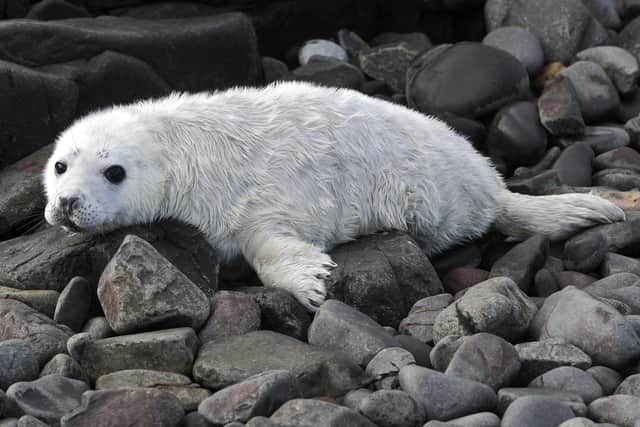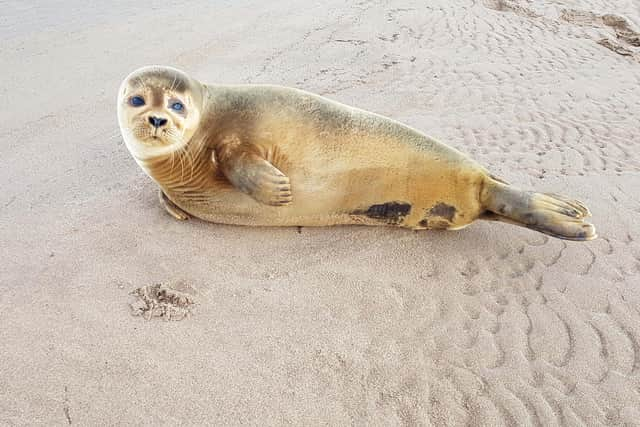Northumberland beach-goers urged to keep their distance from seals as pupping season approaches
and live on Freeview channel 276
The advice from British Divers Marine Life Rescue (BDMLR) comes with the grey seal pupping season around the corner.
BDMLR volunteer Andy Sisson, who lives in Rennington, near Alnwick, said: “The Farne Islands has one of the largest breeding colonies of grey seals in the UK.
Advertisement
Hide AdAdvertisement
Hide Ad"Last year was a very successful breeding season on the Farnes with over 2,000 pups born but it was a busy one for us. We received over 400 call-outs, 95 per cent of which was for grey seals, mostly young animals under three months old.


"We’ve also been busy recently because the common seal pupping season is in the summer and we’ve had calls to pick them up from Boulmer, Beadnell and Coquet Island.
"As we head into September, the grey season pupping season will begin again.
"Public disturbance is a big problem so we want people to know what they should do if they come across an ill or injured seal.”
Advertisement
Hide AdAdvertisement
Hide AdIf you find a seal on a beach, watch it from a distance. Do not approach. Seals regularly haul out on our coasts.


Do not allow children or dogs near it. Seals will defend themselves aggressively if necessary.
After stormy weather and / or high tides, seals will haul out on beaches to rest and regain their strength.
However, if there is a problem, there are a number of things you may see.
Advertisement
Hide AdAdvertisement
Hide AdIf you see a seal with a white, long-haired coat in the autumn/winter then it is probably still suckling from its mother. Check the sea regularly for any sign of an adult seal.
Look for signs of malnutrition or ill health, such as coughing, sneezing or noisy, rapid breathing and possibly thick mucus coming from the nose, wounds or swellings, particularly on flippers, cloudy eyes, or thick mucus around them.
Seals are also susceptible to being entangled in fishing gear and other debris.
If you see a seal that may be abandoned, thin, ill or injured, then call BDMLR 24 hour hotline on 01825 765546 or ring the RSPCA on 0300 1234 999.